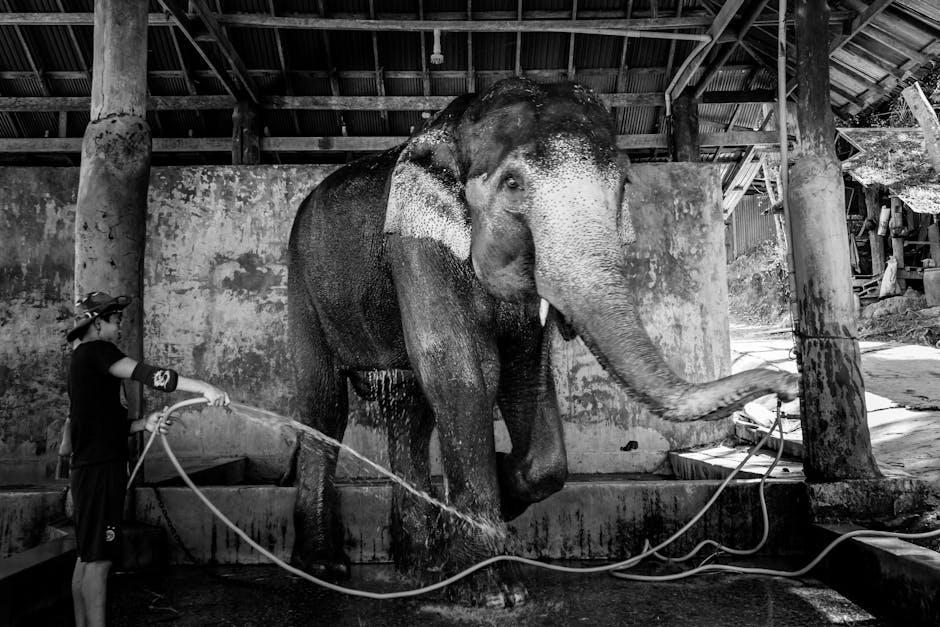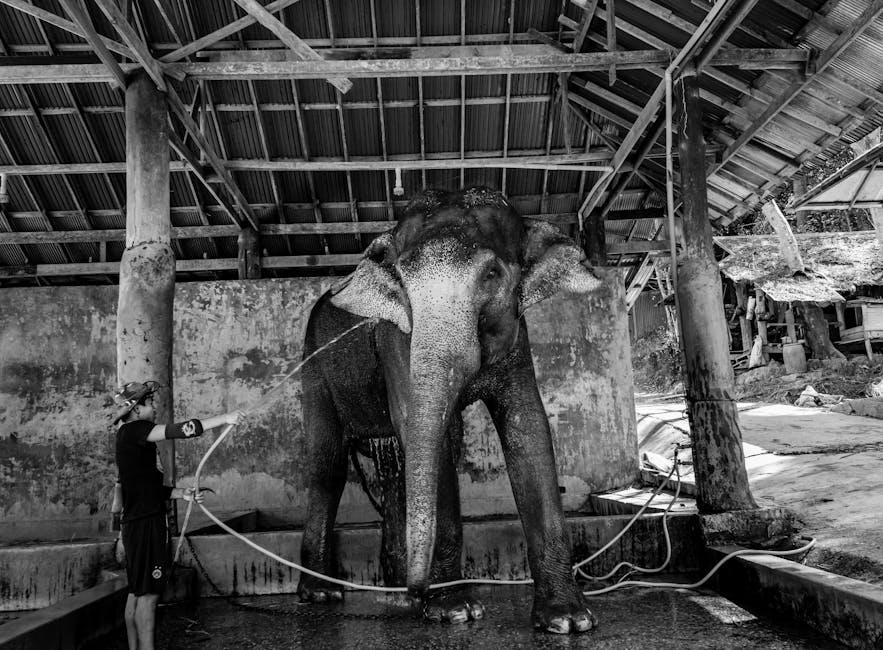In the heart of Africa, where the savannah stretches endlessly under a blazing sun, the majestic elephant strides with a quiet grace, embodying both the wild spirit of the continent and its ancient rhythms. Yet, amidst this natural splendor, a complex ethical tapestry unfolds, woven from the threads of tourism, tradition, and conservation. Elephant rides and shows have long captivated travelers, offering an up-close encounter with one of nature’s most awe-inspiring creatures. But beneath the surface of this seemingly benign attraction lies a contentious debate that challenges our understanding of wildlife tourism. As we journey into the world of elephants in Africa, we must navigate the delicate balance between human curiosity and the welfare of these gentle giants, questioning whether our admiration for them truly honors their existence or inadvertently contributes to their plight. Join us as we explore the ethical dimensions of elephant rides and shows, seeking to understand the impact of our choices on the lives of these magnificent animals and the ecosystems they inhabit.
Cultural Significance and Tourism Appeal
Elephants have long been intertwined with the rich tapestry of African culture, symbolizing strength, wisdom, and loyalty. They feature prominently in folklore, traditional ceremonies, and even in the intricate carvings that adorn local handicrafts. For many, these majestic creatures are a living link to a time-honored heritage, representing the wild heart of the African continent. However, as tourism flourishes, the allure of elephant rides and shows has become a double-edged sword, balancing cultural reverence with ethical considerations.
- Economic Impact: Tourism centered around elephants provides significant economic benefits to local communities, offering jobs and supporting conservation efforts.
- Cultural Connection: For tourists, engaging with elephants offers a unique opportunity to connect with the culture and history of the region.
- Ethical Concerns: The practices involved in training elephants for entertainment raise questions about animal welfare and the long-term impact on their well-being.
While the tourism appeal of elephant interactions remains undeniable, it is crucial to weigh these experiences against the ethical considerations they entail. As the global community becomes more conscious of animal rights, the challenge lies in finding a harmonious balance that respects both cultural significance and the dignity of these magnificent creatures.

Understanding the Impact on Elephant Well-being
Elephants, majestic and intelligent creatures, often endure significant stress and trauma when subjected to rides and performances. Their well-being is compromised in several ways, leading to both physical and psychological harm. In captivity, elephants are deprived of their natural behaviors, such as roaming vast landscapes and socializing freely within herds. Instead, they are confined to small spaces and forced into routines that serve human entertainment rather than their own needs.
- Physical Strain: The weight of tourists on their backs can cause severe spinal injuries.
- Psychological Stress: Constant exposure to noisy environments and human interactions can lead to anxiety and depression.
- Lack of Socialization: Elephants are social animals that thrive in complex family structures, but captivity often isolates them from their kind.
- Unnatural Behaviors: Forced to perform tricks, elephants may develop abnormal behaviors due to stress and boredom.
Understanding these impacts is crucial in evaluating the ethical considerations surrounding elephant rides and shows. By prioritizing the natural needs and instincts of elephants, we can move towards more humane and respectful interactions with these magnificent animals.

Evaluating Conservation and Economic Factors
When considering the ethical implications of elephant rides and shows, it’s crucial to weigh the delicate balance between conservation efforts and economic incentives. On one hand, these activities often serve as a significant source of income for local communities, providing jobs and boosting tourism. This economic benefit can lead to increased funding for wildlife protection initiatives and community development projects. On the other hand, the welfare of elephants is a major concern, as they may be subjected to harsh training methods and inadequate living conditions.
- Conservation: Revenue generated from elephant tourism can support conservation projects, aiding in habitat preservation and anti-poaching efforts.
- Economic Benefits: Elephant-related tourism creates employment opportunities and promotes cultural heritage, attracting visitors eager to experience Africa’s unique wildlife.
- Welfare Concerns: Ethical considerations arise from the treatment of elephants, including their physical and psychological well-being.
Finding a sustainable solution requires a multifaceted approach that includes enforcing ethical guidelines, promoting eco-friendly alternatives, and fostering community education programs. By addressing these factors, we can work towards a future where both elephants and local communities thrive harmoniously.

Pathways to Ethical Tourism Practices
In the pursuit of more responsible travel, it’s essential to explore avenues that prioritize the welfare of wildlife, particularly in the context of elephants in Africa. Adopting ethical tourism practices involves making informed decisions that support the conservation and protection of these majestic creatures. Here are some ways travelers can engage in more responsible interactions with elephants:
- Choose Sanctuaries Over Shows: Seek out elephant sanctuaries that focus on rehabilitation and conservation rather than entertainment. These facilities often provide educational tours that allow you to observe elephants in a natural setting.
- Support Community-Based Initiatives: Engage with local communities that offer eco-friendly tours. These initiatives often benefit both the community and the elephants, promoting a sustainable coexistence.
- Educate Yourself: Before booking any experience, research the ethical implications of elephant rides and shows. Knowledge is power, and understanding the impact of your choices can lead to more responsible tourism.
- Advocate for Change: Use your voice to support policies and organizations that aim to improve the welfare of elephants. Sharing your experiences and insights can influence others to make ethical choices.
The Conclusion
As we close this exploration into the ethics of elephant rides and shows in Africa, we find ourselves at a crossroads where tradition, conservation, and compassion intersect. These majestic giants, with their profound intelligence and complex social structures, challenge us to rethink our relationship with the natural world. The debate is not merely about the immediate enjoyment of an elephant ride or the spectacle of a show; it is a reflection of our broader responsibility as stewards of the Earth. As we ponder the path forward, let us be guided by a commitment to balance cultural heritage with ethical responsibility, ensuring that the stories we tell of elephants are ones of respect and coexistence. the choices we make today will echo through the generations, shaping the legacy we leave for both humanity and the gentle giants that share our planet.


































